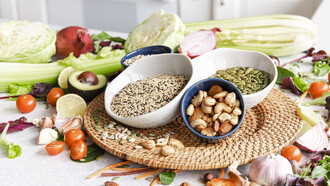The world is in a pretty miserable state at present. It seems bedevilled by wars, pestilences, famines, and economic privations. Reading the news, one would think that the majority of its peoples are beset by poverty, starvation, ill-health, and mental afflictions. Whilst much of this is true, there is another side to the story. In fact history shows that ‘twas ever thus.
Taking the long view, mankind has, overall, been in a far worse state than it is in at present. Wars were ubiquitous, and usually more gruesome than they are now. Sickness was constant, and dealt with in habitually ignorant and brutal fashion. Poverty and starvation affected a far greater proportion of the populace even than today. Homo sapiens, whilst still being in a pretty primitive state, is actually better off in the present day than it has ever been. That is unless it decides to destroy itself through its own folly. Until it does that, I personally get great consolation and encouragement from one particular activity. That of dining out.
Yes, this is a privilege accorded to the more prosperous and privileged of society. But even the less well-off can occasionally indulge in the offerings of the cheaper end of the catering industry. However, I am really talking about the more sophisticated of the culinary arts. Even when cash-strapped, I have usually, throughout my long career, managed to indulge my love of good restaurants. At least twice a week, and often more, I (and later my wife also) have ventured out into the back streets of whatever metropolis we have arrived at in search of that special eatery, that family run establishment, that acclaimed chef, who can provide a unique and delicate tastebud experience.
It never ceases to astonish me that good food can be found almost anywhere if one manages to seek it out. I have a theory that, if one met a nomad on a camel in the middle of the Sahara Desert and asked him whether there was a good restaurant anywhere near, he would point and say, ‘Yes, go round the third sand dune on the left, and you will find Chez Hassam there. He makes a wonderful kebab.’
Having dined in hundreds of places in dozens of countries over many decades, I never cease to wonder at the astonishing feat good restauranteurs achieve by putting in front of one a succession of delicately tasting dishes, from a long list of menu offerings, at the right temperature and the right time, and with all the necessary tools, crockery and equipment necessary for their consumption (I once totalled up the number of items necessary for supplying a three course meal for four at a moderately sophisticated restaurant. The total was over a hundred. Miss one and you might have lost a customer).
No two menus and no two dishes are ever the same. Whether one is consuming a simple lasagne in an Italian establishment, or an array of Chinese delicacies in an oriental one, the experience is ever one of anticipation, discovery, and varied satisfaction. I love the cuisines of all nations. However, if forced to compare, I would have to say that the top end of French haute cuisine is still my favourite.
Food in France has declined greatly over recent decades. The days when one could stop in any French village and discover a back street bistro, run by several generations of family caterers, and serving delicious offerings of simple yet truly special country dishes at extremely moderate prices, are dying out—replaced all too often by the vast international fast-food chains. Yet still, if one uses the invaluable Michelin guide and is feeling affluent enough, one can visit an exclusive city centre eatery, or a converted chateau hotel, and experience a succession of dishes where the combination of ingredients and the delicacy of tastes is unrivalled anywhere else.
French chefs still take a pride in inventing their own unique presentation of flavoursome experiences. I am frequently surprised at the daring combination of apparently incompatible ingredients, which produce the most delightful of gastronomic effects. Of which the gratuitous amuse bouche is often the subtlest and most varied. Other nations should follow the example of providing this. It adds to the workload, yes, but it also adds enormously to the dining experience and the reputation of the cook (and of course induces one to order that indulgent cocktail or glass of champagne to go with it).
Good cooking is one of the great arts of mankind. Well-run restaurants are a sign that the planet, whatever its depressing manifestations, is still a place of good cheer and brilliant achievement. They are places where families, friends, convivial strangers, can come together and celebrate over a splendid sustaining concoction and a glass of wine, whilst putting the world to rights.
Whenever one is depressed, frustrated, disappointed with the progress of life, one only has to venture out to one’s favourite local diner, sniff the kitchen smells, settle into a seat by the window, unfurl one’s napkin, order a pre-dinner tipple, survey the familiar menu, study the neighbouring diners, and settle in for an evening of budget stretching indulgence, and suddenly God is back in his heaven and all is well with the world.
Bon appetit.















